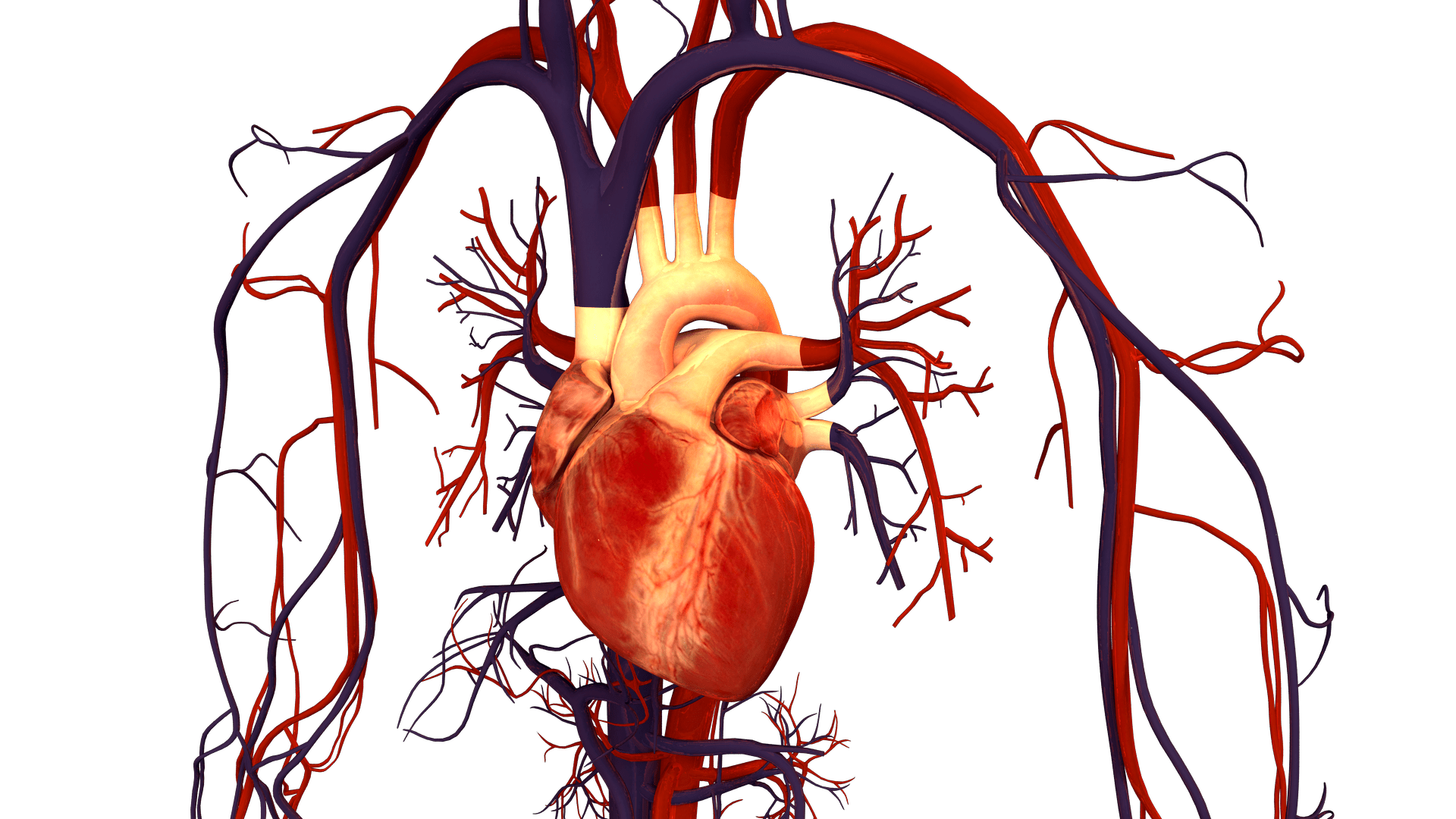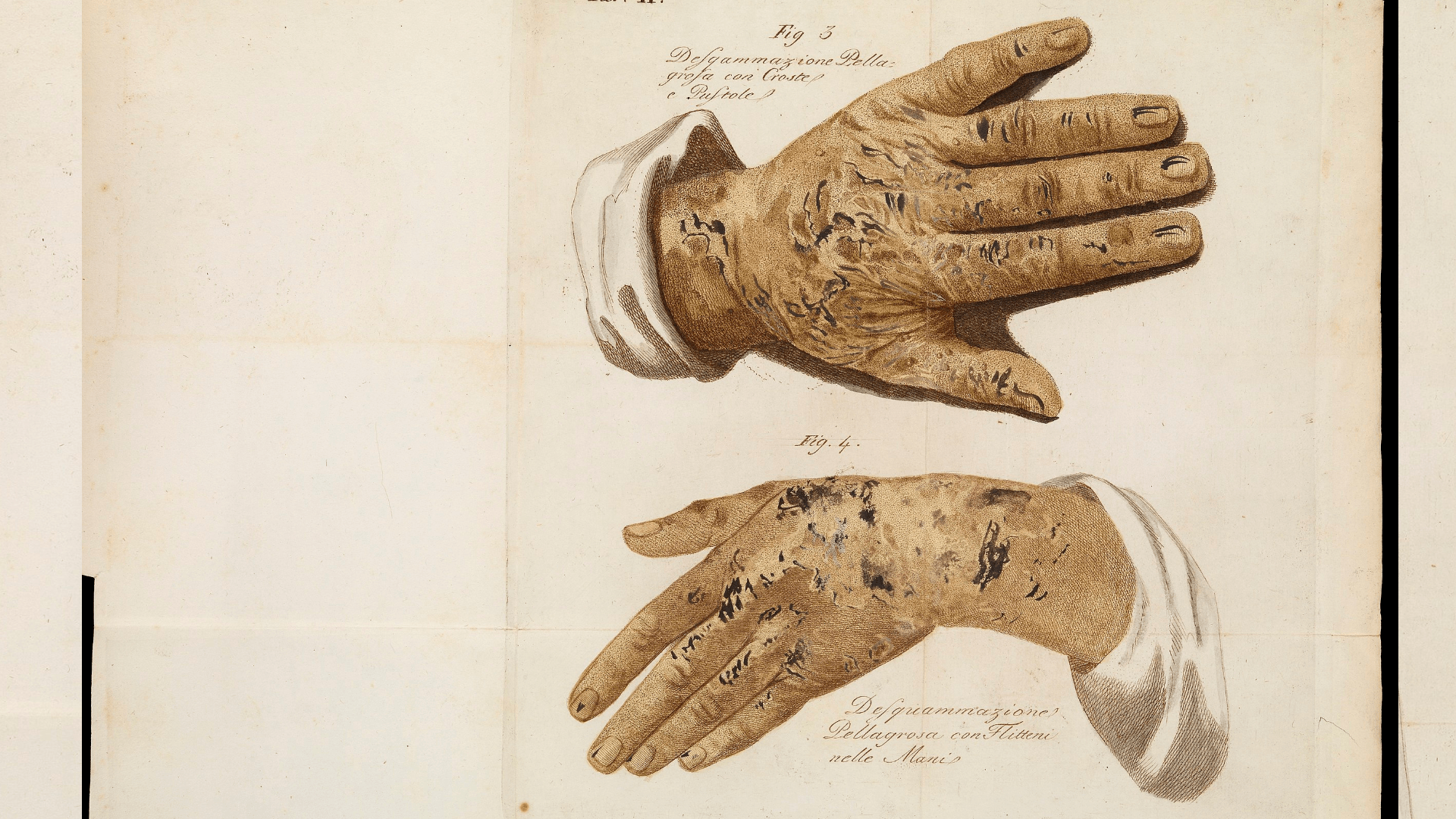In recent research led by the Cleveland Clinic, a significant association between excess Vitamin B3 (niacin) intake and an increased risk of heart disease has been uncovered.
Published in the journal Nature Medicine, the study reveals that up to 25% of individuals may have higher-than-recommended niacin levels. While niacin, also known as Vitamin B3 or nicotinic acid, was once suggested for cholesterol reduction, this study sheds light on its potential adverse effects on cardiovascular health.
Niacin Causes Inflammation in the Circulatory System

Upon breaking down niacin, the body produces a byproduct called 4PY, initiating inflammation in the circulatory system.
This inflammation damages blood vessels and contributes to the formation of atherosclerosis, a buildup that significantly elevates the risk of strokes, heart attacks, and other major heart issues.
The Average Person Should Avoid Niacin Supplements

The study’s senior author, Stanley Hazen, emphasizes the importance of avoiding niacin supplements for the average person due to the potential increased risk of cardiovascular disease.
“[W]e have reason to believe that taking too much niacin can potentially lead to an increased risk of developing cardiovascular disease,” Hazen said in a recent statement.
Investigating Unknown Risks Associated with Heart Disease

The researchers initiated the study to investigate unknown risks associated with heart disease.
A major motivation behind this study is the persistence of heart disease in individuals adhering to recommended preventive measures
Preventive Measures for Heart Disease

What are the preventive measures recommended to combat the onset of heart disease?
They include eating a healthy diet, getting regular exercise, limiting alcohol consumption, and effectively managing weight, blood pressure, and blood sugar. Heart disease stands as the leading cause of death in the U.S., contributing to 1 in 5 deaths in 2021.
Study Methodology and Results

The newly published study involved the analysis of blood samples from several thousand individuals.
Initially, the analysis of blood samples focused specifically on people being monitored for heart problems, but it was later expanded to a broader population.
The Niacin Paradox: Lowering Cholesterol with Adverse Effects

In all cases, the analyses consistently indicated a higher risk of heart problems associated with elevated niacin levels.
These findings offer insights into the “niacin paradox,” a phenomenon where niacin’s cholesterol-lowering benefits are overshadowed by adverse effects, including an increased risk of diabetes, brain bleeding, skin problems, and gut issues.
New Study Shows Niacin’s Adverse Effects Outweigh Benefits

The research demystifies the niacin paradox and clarifies why clinical benefits were often less than anticipated based on LDL reduction.
Despite niacin’s ability to lower cholesterol, its unclear adverse effects seemed to counteract the expected benefits. Senior author Hazen notes that understanding residual cardiovascular risk is crucial, as it provides valuable insights beyond the initial research goals.
Niacin was Once Used to Combat Pellagra

Niacin, historically added to products like flour and fortified cereals since the Great Depression era, aimed to combat pellagra—a health condition resulting from niacin deficiency.
Pellagra symptoms include skin problems, diarrhea, and dementia, which shows the importance of niacin fortification during that period.
Niacin Deficiency in the Great Depression

During the Great Depression, pellagra impacted over 3 million Americans, and resulted in over 100,000 deaths. As noted above, the epidemic saw resolution through dietary niacin fortification.
Particularly prevalent in the American South, pellagra ranked as the ninth or tenth leading cause of death, boasting a death rate comparable to malaria.
A Nuanced Approach to Niacin Intake

Hazen suggests a nuanced approach to niacin intake, emphasizing the need for a discussion regarding the continued fortification of flour and cereals with niacin in the U.S.
Hazen stated that “Given these findings, a discussion over whether a continued mandate of flour and cereal fortification with niacin in the U.S. could be warranted.”
More Balanced Approach to Niacin Intake is Necessary

The research clearly displays the potential cardiovascular risks associated with excessive niacin intake, challenging previous perceptions of its benefits in cholesterol management.
As discussions evolve regarding the fortification of everyday products, the study contributes to our understanding of the complex relationship between niacin and heart health, emphasizing the need for balanced approaches to dietary supplementation.
Don’t Treat Heart Disease with Supplements

“The bottom line is, we don’t recommend supplements to treat or to prevent cardiovascular disease,” says Johns Hopkins physician Edgar R. Miller III, M.D., Ph.D., whose research review on the topic has been published in the Annals of Internal Medicine (via Johns Hopkins Medicine).
Miller continues: “The good news is, you don’t have to spend any money on supplements.”
Another Study on Dangerous Vitamins for the Heart

Researchers reviewed randomized clinical trials involving thousands of subjects who received either vitamins or a placebo. In the research, the vitamins did not show any benefits to cardiovascular disease.
However, one exception is omega-3 or fish oil capsules. This fatty acid, found in fish and marine algae, can help the heart.
Two Harmful Supplements
While research has found that supplements can provide no benefits to the heart, consuming too much of certain vitamins can be harmful. The two most harmful vitamins and supplements are calcium and vitamin D.
These two can increase the risk of cardiovascular disease according to the study. However, there is little evidence that any amount of vitamin D can protect the heart.
Red Yeast Rice

Red yeast rice, which is a type of yeast grown on white rice, is an ingredient included in supplements like monacolin K. Small studies suggest that supplements with high amounts of monacolin K may be effective.
The issue is that you can tell how much monacolin K is in a supplement. “That may be fine if you’re not taking a statin, but if you are, you could be getting too much of the medication; that can cause muscle pain or even a life-threatening muscle breakdown that can damage other body systems,” says Dr. Pieter Cohen, an associate professor of medicine at Harvard Medical School (via Harvard).
L-Arginine

L-arginine is an amino acid and a building block of nitric oxide, a molecule that helps relax and open blood vessels. These supplements are marketed as a way to increase circulation, lower blood pressure, and promote erections.
However, people with heart disease should avoid L-arginine as a study that focused on heart attack survivors taking the pill had to stop early after six people in the study died.
Garlic Pills

While garlic pills promise to lower cholesterol levels and blood pressure, studies are mixed about the effects on heart health. The combination of fresh garlic, dried powdered garlic, and aged garlic extract.
However, garlic supplements do not show any signs that it is helping your heart health. Plus, the best way to get the garlic your body needs is to eat it in your food.
The Paradox of Niacin

“Niacin’s effects have always been somewhat of a paradox,” Hazen says to the National Institutes of Health.
“Despite niacin lowering cholesterol, the clinical benefits have always been less than anticipated based on the degree of LDL [cholesterol] reduction. This led to the idea that excess niacin caused unclear adverse effects that partially counteracted the benefits of LDL lowering. We believe our findings help explain this paradox.”
How Much Is Too Much

People might experience serious side effects if they are taking between 2,000 to 6,000 mg of niacin a day. Those who have liver disease, peptic ulcer disease, or seven low blood pressure should not take large amounts of niacin.
Talk with your doctor if you are unsure how much niacin to take each day.
Niacin and Niacinamide Are Different

Niacin and niacinamide may sound similar in name, but they are not the same. Niacinamide forms when your body has an excess of niacin.
Niacinamide often appears in products that protect and nourish the skin or treat acne.
Niacin Is Essential

While niacin is essential to your health, the best way to get your daily dose of the vitamin is through the foods you eat. The foods that include this vitamin are red meats, poultry, fish, bananas, brown rice, legumes, nuts, seeds, fortified breads, and cereals.
Research is still looking into niacin and how much is recommended for a person to take. However, each person is different and will need a different amount of niacin each day.
Vitamins to Avoid

There are risks that you can look out for when choosing your vitamins and supplements. Investigations show that pills that can contain medicinal herbs are often full of fillers like powdered rice or even dangerous substances.
Miller says, “The FDA does not regulate supplement production, nor does the industry need to prove health benefits, so they can use vague language like ‘good for heart health’—but they cannot say ‘will lower blood pressure.'”
Eat Vitamin Rich Foods

The best place to get the vitamins your body needs comes from the best source of energy: food. Eating vitamin-rich foods can contain a natural dose of nutrient compounds.
“Food offers a full complement of the antioxidants you need, not just selected ones in high doses,” Miller says.








































